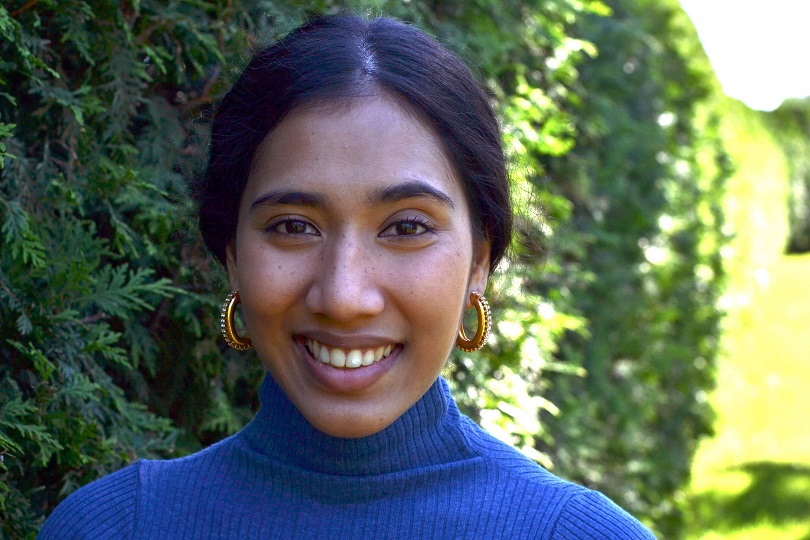The application window for three year-long fellowships offered to female-identifying graduates of Queen’s has opened.
The Jean Royce Fellowship, Marty Memorial Fellowship, and Alfred Bader Fellowship in Memory of Jean Royce are awarded annually to support a year of study, research, or a project that fosters creative expression or drives progress in knowledge or society.
The fellowships are now accepting applications until Sunday, May 11 at 11:50 pm. You can find the applications on the Registrar and Financial Aid Services website.
Keep reading for how three past recipients have benefitted from the fellowships.
Tka Pinnock, Artsci'07
Marty Memorial Fellowship recipient, 2024-25

When Tka Pinnock was awarded the Marty Memorial Fellowship last year, she was gifted a book that contained portraits and life histories of the fellowship’s recipients from its first 50 years.
“I realized that I was now part of this wonderful community and legacy of Queen’s women pursuing and achieving PhDs and going off into the world to do interesting and transformative things,” she says.
She credits the fellowship funding as pivotal in allowing her to dedicate time and space for her own PhD dissertation in the Department of Politics at York University.
Titled “Displaced and Dispossessed: Afro‐Jamaicans and Everyday Life in Ocho Rios, Jamaica,” Pinnock’s dissertation examines how Afro-Jamaican women in the craft industry respond to the challenges posed by tourism-led development.
Ocho Rios, a town transformed by tourism, has become a focal point for economic growth, but the consequences for everyday workers remain largely unexplored. Pinnock’s research investigates how these workers experience globalization, economic development, and crises such as the COVID-19 pandemic.
Pinnock says the fellowship has not only provided financial relief but also a supportive community of women in academia.
“Being part of a legacy and being reminded of how far women – and women in academia – have come is a nice anchor to hold on to in the isolation and intensity of completing my dissertation,” she says.
Basmah Rahman, Artsci'18, Ed'19
Alfred Bader Fellowship in Memory of Jean Royce recipient, 2024-25

For Basmah Rahman, the financial support offered by the fellowship was a big reason why she applied. But it was more than that, she says.
“This fellowship helps to increase the accessibility of academic research while encouraging community outreach, two key components that align with my research values,” she says.
Rahman is a PhD candidate at Queen’s in the Department of English Literature and Creative Writing. She used the fellowship funding to back her dissertation, which addresses the struggles faced by marginalized youth in Canadian classrooms, particularly due to racial, gender, and socio-economic misrepresentation.
Drawing from personal experiences as an educator and student in Kingston, Rahman’s research work emphasizes the importance of community engagement.
“Community interactions and personal experiences are the roots of my project,” she says, highlighting how these connections inform her work on marginalized identities and educational inequities.
With the fellowship’s help, Rahman has been able to focus on topics such as refugee and Indigenous literature while incorporating new teaching methods, which she applied last fall in the first university course she ever taught.
“My goal was to create an engaging learning environment that prioritized student agency and community, two key aspects of my research project,” she says.
Clarissa de Leon, Ed’13, MEd’17
Jean Royce Fellowship recipient, 2023-24

Like Pinnock and Rahman, Clarissa de Leon also used the fellowship for her PhD dissertation, which is about better understanding the complexities that grad students who are Black, Indigenous, and People of Colour (BIPoC) face in their anti-racist teaching development.
de Leon is in the final stages of her PhD program in the Queen’s Faculty of Education, and is set to defend her dissertation this summer.
She applied for the Jean Royce Fellowship, she says, because it encourages social advancement research – exactly the type of research she is interested in.
“In addition to helping identify institutional changes needed to better protect BIPoC graduate students as a marginalized group, findings from my study also provide potential insights on how to foster growth in BIPoC graduate students as they prepare to become leaders for anti-racism in higher education, different academic disciplines, and society at large,” she says.
Another major benefit of the fellowship was financial security, says de Leon. She has formally accommodated accessibility needs that impacted her ability to complete her research within the typical four years. Grad student funding packages aren’t guaranteed outside of that four-year window.
“Given the limited funding opportunities available, the Jean Royce Fellowship provided me with an opportunity to support my livelihood while furthering my research,” she says.
For more information about the three fellowships, visit the Awards and Fellowships page.


